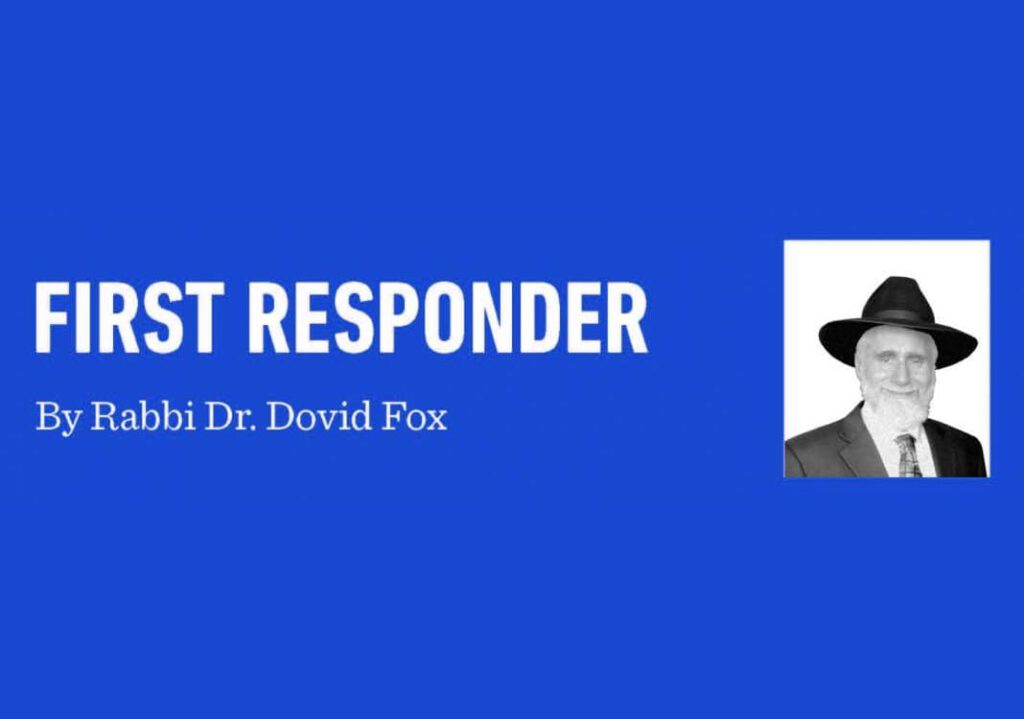Reflections On The Texas Tragedy
Summer camp season usually conjures up memories of idyllic settings, joyful activities, and an experience that can enhance the wholesome growth of young people away from home and family.
When summer turns brutal and disaster strikes a camp or camping site, hearts are shattered and dreams demolished. When we learned of the torrential rains that turned soothing rivers into treacherous floods, and saw the images of the deluge sweeping away trees, cabins, and, tragically, human lives, our minds were left with a terrifying impact, and the families of the victims who were lost and gone forever were left brokenhearted. May G-d bring them the composure to cope and the tools for acceptance and consolation with the passage of time.
The psychological ripples of horrible news and catastrophic realities can run very deep. Our mood is in upheaval with tears, sadness, grief, and at times the rage of feeling that this tragedy was unfair and not supposed to happen. Our anxiety skyrockets, fearful about what the ultimate outcomes will be and dreading another natural disaster happening again. Thoughts are riddled with worry and the indelible images of what took place. Our bodies also react with tension, restlessness, in addition to sleep and appetite disturbances, plus a range of pain, weakness, and distress symptoms as we internalize the horror and the suffering the campers must have undergone. In truth, our assumptive reality has been shaken and altered by this terrible tragedy. No parent anticipated this; no child was prepared. No camp in the region was unscathed.
This is trauma. When the unexpected occurs and there are casualties—whether they are the victims, survivors, or witnesses to the horror, our brain and body react. It is normal to undergo the shock-horror which erupts within the mind, and it is quite uncommon for a person to experience no reaction at all.
Our humanity, which should include sensitivity and empathy for those in plight, pushes us to feel the distress of those who now suffer, knowing they feel helpless and we may feel helpless too, unsure of how to respond to them from our place of relative comfort. From a mental hygiene perspective, times of tragedy activate an element of caring and sensitivity inside of us. But what happens with that reaction depends on each individual.
We learn about ourselves when we look at our impulsive and spontaneous reactions to life events. We also learn about ourselves when we analyze the thoughts and feelings we have about other people. When we learn about another person’s suffering, we learn about ourselves as well as we observe our initial internal activity and then by monitoring our subsequent decisions. For example, when we hear about a tragedy, we can react reflexively with personal distress or with concern for the victims. The first example would be feeling “I can’t handle this,” while the second example would be: “Those people are in distress.”
It is normal for people to internalize tragic information even when it is unrelated to themselves and to react with subjective distress. We usually view that as the basis of sympathy, which is the feeling of pity and compassion for another person’s misfortune or suffering. Some people, however, react with empathy, which means they more or less leave themselves out of the other person’s distress and instead feel concern for them or think about them, as opposed to focusing on what their own reaction might be if they were the victim.
Monitoring your spontaneous or initial reaction to a tragedy affecting someone else requires something very healthy known as self-awareness. When caught up in an emotional event, it can be difficult to step back and to observe our own psychological reaction. Maturity allows us, potentially, to do exactly that. We experience ourselves, but we have the brain capacity to observe ourselves as well. Whether you react to tragic news viscerally and personally, or with concern and compassion for the actual victims, once you are self-aware, you have the cognitive consciousness to make a decision and take a next step.
We learn something more about ourselves as we analyze our decision. We can decide to make a call to someone who might have been affected or we might look for ways to donate to a fund or charity to assist the survivors and victims. We might decide to pray or recite psalms on behalf of those who have suffered, or volunteer material support. We can also choose to do nothing, perhaps rationalizing that there is nothing of significance that one might offer. Others might just move on, unwilling to stay immersed in the dread, sadness, or shock of the situation. Still others opt to look for ways to prevent similar tragedies from happening again, to others or to themselves.
That second step—deciding what to do—typically involves identifying or sensing the meaning that one attributes to tragedy. A person can relate to a tragedy as having a spiritual message, a psychological lesson, interpersonal significance, or no personal meaning at all other than the unfortunate news.
When you determine the meaning of a tragedy on a personal level, the subsequent decision to do something about it or do something because of it is best thought of as determining subjective purpose in having encountered or learned something about the tragic event.
Exposure to trauma, whether to oneself, one’s loved ones, or to those with whom we have no connection will typically trigger a reaction. What we do next will inform us about who we are, how we are, and what we value in looking for personal meaning in someone else’s suffering. If we feel that someone else’s suffering has a meaningful lesson for us, some of us will take purposeful steps on behalf of the victims who need our support and prayers. n
Rabbi Dr. Dovid Fox is a forensic and clinical psychologist, and director of Chai Lifeline Crisis Services. To contact Chai Lifeline’s 24-hour crisis helpline, call 855-3-CRISIS or email [email protected]. Learn more at ChaiLifeline.org/crisis.












